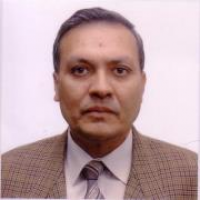Enhancing Public Trust In Judiciary
Shyam Prasad Mainali
The dissolution of the House of Representatives (HoR) for the second time on May 22 has triggered thought-provoking debates among legal experts, political parties and common people. Altogether 19 petitions have been filed against this move. The Supreme Court is conducting the hearing on it.
All petitions are being debated under the jurisdiction of the constitutional bench. In the course of a three-day hearing, some senior judges argued strongly against the presence of two judges on the constitutional bench on grounds of ‘conflict of interest’. However, both justices were adamant that there was no clear basis to establish the said ‘conflict of interest’ regarding the dissolved HoR.
This led the senior judges to cite the principles adopted in the USA, whereby justices voluntarily rescue themselves from hearings under two circumstances. These include under circumstances of ‘economic interest’ and in situations where there is a probability that the decision may be biased.
As the pressure mounted on the Chief Justice (CJ) for the decision, two justices voluntarily opted out of the hearing citing moral ground based on a universally accepted code of judicial ethics. This prompted the Nepal Bar Association to advise the CJ to denominate justices based on a seniority basis. The CJ agreed with this suggestion and the new bench based on seniority has been formed, which needs to be appreciated by all stakeholders. After few days hearing bench issued short term 'show cause' order to the defendants, the next hearing is scheduled to resume from June 23.
Issues of concern
It is widely felt that excessive politicisation of the judiciary has led to a general impression of ‘mistrust’. The situation has deteriorated to the extent that the concerned experts are known to speculate on court verdicts in advance in particular cases. This calls for the need to ensure the confidence of the general public in court decisions. Even the CJ who heads the constitutional bench should be merely responsible for forming the constitutional bench and oblivious of the opinions of other independent judges. Decisions should be entirely based on concrete evidence presented while haring the case will clear the CJ from any controversy.
People believe that not all justices in the SC have been appointed on the basis of merit and occupational integrity and some of the appointments have been made on the basis of political inclination and personal influence. There is a probability that these justices might find themselves appointed to the constitutional bench and it would be very difficult to believe in fairness, independence, merit-based hearing, and justifiable decisions. Hence, this calls for a priority to hand over this case to the whole cadre-based judges of the Supreme Court.
The incumbent Prime Minister was appointed as the leader of the largest party in the parliament, as per Article 76 (3) of the constitution. The appointed PM should secure a vote of confidence within 30 days. The President can alternatively appoint any other member of the HoR under the condition that the person produces a reliable basis of winning the confidence of the majority members of the HoR within the stipulated period after the appointment. As events unfolded, two claims on the basis of the support of 149 and 153 members by the president of Nepali Congress Sher Bahadur Deuba and the incumbent PM KP Sharma Oli, respectively, were presented to the President in line with Article 76(5). HoR has only 271 members, but both claims have been presented on the basis of 302 members.
The best practice for the President’s office would have been to verify the number of HoR’s members extend support to each claimant in person to appoint a deserving candidate as PM. However, the President’s office moved ahead to annul both claims. The President outright rejected both claims on the ground that both members are unable to get the support of the majority members of the parliament. The opposition parties and scores of civil society members criticised the decision. The HoR dissolution and the announcement of early elections is not a normal course of action while pandemic is severe and rampant.
Judicial independence
As court is a democratic institution, judicial independence is important to strengthen democracy. They should be careful to select judges for the constitutional bench in a transparent manner to avoid doubt from the citizens for such an esteemed bench. Fairness and impartial decisions based on concrete evidences should be the norms to avoid ‘conflict of interest’ during the hearing process. Similarly, if questions are raised against the CJ during the process of the formation of the bench, one should also be able to prove mala fide intention.
Some lawyers also claim that the HoR dissolution will give rise to political instability, causing negative impacts on social and economic spheres. The Supreme Court should take into account the international and domestic best practices in the process of hearing and make decisions to promote political and social stability, spirit of democracy and established precedents. The SC’s decisions will then be acceptable to people belonging to all walks of life.
(The author is former secretary of Nepal Government and writes on contemporary political and social issues. mshaym@nema.edu.np)
Recent News

Do not make expressions casting dout on election: EC
14 Apr, 2022
CM Bhatta says may New Year 2079 BS inspire positive thinking
14 Apr, 2022
Three new cases, 44 recoveries in 24 hours
14 Apr, 2022
689 climbers of 84 teams so far acquire permits for climbing various peaks this spring season
14 Apr, 2022
How the rising cost of living crisis is impacting Nepal
14 Apr, 2022
US military confirms an interstellar meteor collided with Earth
14 Apr, 2022
Valneva Covid vaccine approved for use in UK
14 Apr, 2022
Chair Prachanda highlights need of unity among Maoist, Communist forces
14 Apr, 2022
Ranbir Kapoor and Alia Bhatt: Bollywood toasts star couple on wedding
14 Apr, 2022
President Bhandari confers decorations (Photo Feature)
14 Apr, 2022











